SUMMARY
This is AI generated summarization, which may have errors. For context, always refer to the full article.
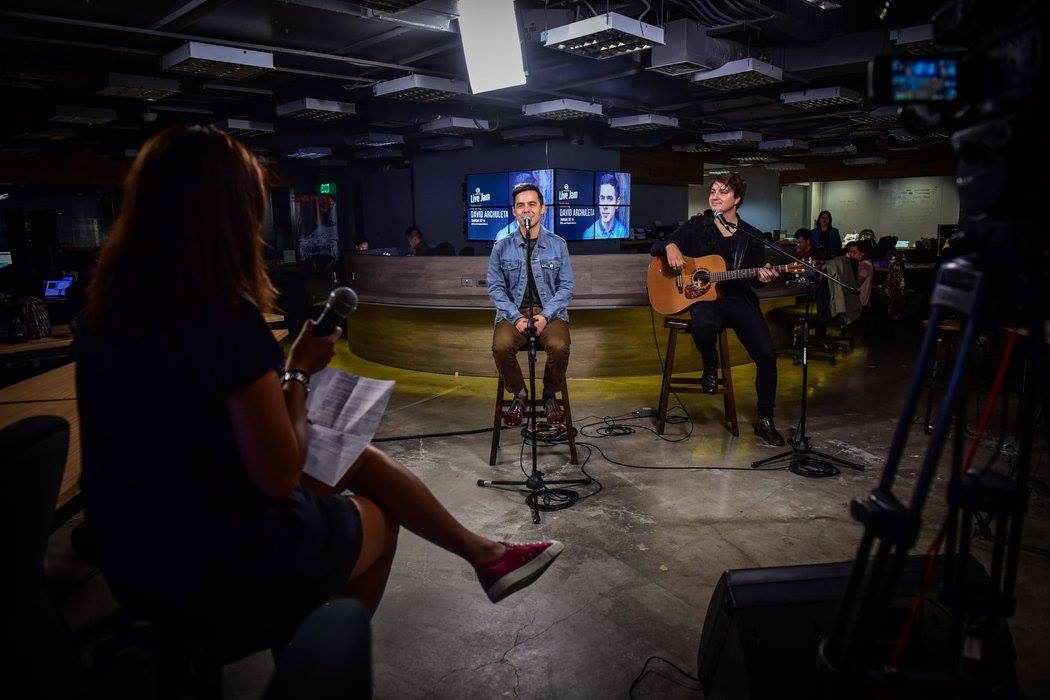
MANILA, Philippines – Once a week on most weeks for the past four years, I set aside my introversion and charge, full awkwardness ahead, into conversations with musicians.
Pretty much everyone who can make music is welcome: singer-songwriters by the dozen – from indie artists DIY-ing their way through the music biz to powerbands backed by big labels; artistas-turned-singers; seasoned theater performers; live loopers; rappers; rockstars; OPM legends; even the odd spoken word artist.
Pre-pandemic, Live Jam was a full production, from the moment the artists arrived, to the often magical sound checks that turn into mini jam sessions in themselves, all the way down to lights, camera, action.
These days, there’s none of the flash, but we still host interviews and performances online, and over video calls, a lot of the artists are startlingly candid.
There’s a lot to learn from them. Even in an era when hope is hardest to muster, musicians have been some of the brightest idealists, doling out nuggets of wisdom without even trying. After four years’ worth of conversations with them, these are just some of the things I’ve learned:
Artists are not gods
When they’re up onstage, wielding an instrument with effortless skill or singing lyrics that make the crowd feel a certain way, it’s easy to forget that musicians are humans. At the end of the day though, they’re just like everyone else. They get in moods, they get stuck in traffic and arrive late to gigs. The band Sandwich gets excited by something as simple as pepperoni pizza. Zild gets dropped off by his dad to things, and if he’s early, he sneaks some work in. When he doesn’t hit a note, it bothers him more than anyone else. A surprising number of artists still get nervous before every show, and it’s always amazing to see them transform, to see the jitters literally melt away once the music starts to play.
It takes a village
A song may only last for a few minutes, but it takes an incredible amount of effort and money to put it together and make it sound good. Behind every song is a team that includes not only the artists, but the producers and audio engineers who mix, master, and perfect the track along with them. That’s not to mention the road crew that painstakingly lugs around and sets up equipment for artists at gigs pre-pandemic.
While singers and bands are the headliners of every musical act, there are so many other moving parts behind the scenes. Ebe Dancel, who celebrated 20 years in the music industry in 2019, credited his success to the people he works with.
“I’m surrounded by great people,” he said, adding that, oddly enough, it was when he went solo that he worked with even more people.
Craig Wosahlo, one half of the music duo Hiraya, said that working with the right people made a difference.
“I lived in China for a long time and I wrote and produced my own kind of little things in China, and I was never really happy with it because I didn’t have as many musical relationships there,” he said, sharing how he learned more from working with their producer, Gani.
The road to greatness is paved with random ideas
The songwriting process isn’t a mystical communication with the proverbial muse, and it’s hardly ever a tortured baring of one’s soul. More often than not, songs start off as random, mundane brainfarts that come from just about anywhere.
Sometimes, ideas hit when you’re in transit, as in the case of syd hartha.
“Ayokong maghintay lang ng inspiration minsan, but whenever tumatama siya, kahit saan, literal kahit saan, I take note of everything right away. Marami akong nasulat na kanta sa traffic, pag pauwi ako sa school,” she shared.
(I usually don’t like waiting for inspiration, but when it does hit, literally wherever it hits, I take note of everything right away. I’ve written a lot of songs in traffic, on the way home from school.)
The idea for Jayda Avanzado’s single “M.U.”, for instance, came in the middle of a conversation she was having with a friend about relationships.
“I basically said, I blurted it out, I said, ‘You know yung mga M.U. na ‘yan…hindi ‘yan mutual understanding, malabong usapan ‘yan (That M.U. business…that’s not mutual understanding, that’s miscommunication).’ And I was like, ‘Lightbulb moment!’ This would make a really cool concept for a song,” she shared.
For Keenan Te, inspiration has struck in odd hours – he wrote his song “Dependent” at around two or three in the morning, after the idea came to him while he was half asleep.
“My songwriting process normally starts with an idea, whether that’s something I’m feeling or a situation that I’m in or maybe a few lyrics. I normally start with an idea and I’ll sit by the piano or with my guitar and hit record on my phone and kind of just sing what comes to mind. From there, I’ll choose the parts that I like and put it all together in a song. I’ve got heaps of voice recordings on my phone of just me humming little melodies, or little lyrics,” he said.
People won’t always see things the same way – and it’s okay
It can’t be easy to take something so personal and put it out for the world to hear, but it’s part of the job for musicians. And while we might think they might be particularly protective over something so close to their hearts, they don’t seem to mind at all.
As Gloc-9 put it: “Medyo mahirap magdictate (ng meaning ng kanta) kasi most of the time, kapag nagdidictate ka, mas lalo kang ‘di pakikinggan. I think mas okay na na you always leave that option sa kung sino ang nakikinig sa’yo.”
(It’s hard to dictate the meaning of a song because most of the time, the more you dictate, the less people listen to you. It’s better to leave the option to your listeners).
Beyond just letting go of your work and letting other people interpret it, other artists even draw insight from the way their songs evolve.
“Your art may come from something very personal but then when you put it out there, it creates meanings in other people, and that’s just how it is,” said Munimuni vocalist Adj Jiao.
“Sometimes nagugulat kami, yung song, naggrow siya as people listen to it…mayroon din joy na nakukuha ka as a songwriter kasi nailabas mo na, bakit mo pa ipagdadamot yung kanta. Magugulat ka din sa insight na makukuha mo,” he said.
(Sometimes we get surprised – the song, it grows as people listen to it…that’s also a joy that you get as a songwriter, because, since you’ve released it, why would you not share it with other people? Sometimes, the insight that you get is surprising.)
You can be passionate AND practical
Musicians are hardly starving artists, and most of them pursue their craft with the knowledge that it’s also a business.
Gloc-9, who went independent in 2019, shared that one of his biggest challenges is that he has to shell out money for everything – from recording to music videos. But if it’s a “love project,” such as his music video for “Dungaw,” it’s worth the cost.
Hiraya, who is also independent, said that at some point, they had to give themselves a limit of five songs, because they only had that much of a recording budget.
Independent or not, so few artists actually do music full time – most of them work day jobs and happily so, knowing that it helps them sustain their music.
For Rice Lucido, who is a graphic artist by day, her passion for music isn’t dimmed by having to work. In a way, it makes her love for music even more acute, because she is willing to do what it takes to make it work.
“Whenever I get frustrated from all the requirements, mga kailangan kong gawin, hinahawakan ko lang gitara ko and then I practice, and from then, dun ako nakakaisip ng next step and goals in life. If you love what you do and sobrang grabe yung passion mo, mawawala na lahat ng kung ano man humaharang sa ‘yo,” she said.
(Whenever I get frustrated over everything I have to do, I hold on to my guitar and I practice, and from then, that’s when I think of my next steps, my goals in life. If you love what you do and your passion is great, everything else fades away.)
Art and music are therapy
Much has been said about the healing power of music, and anyone who’s listened to a sad song after a heartbreak can attest to that. But beyond just listening to music, actually making it is one way to deal with and understand difficult feelings.
“Songwriting for me has always been my main tool to process my feelings, to process what’s going on around me,” said Clara Benin, who wrote “It’s Okay” early on in the pandemic as a way to make sense of everything she was feeling at the time.
Zsaris, who also wrote her EP Pakilala during the pandemic, said that it was through music that she reintroduced herself to herself after going through a depressive episode.
“Yung magandang space na binibigay ng songwriting is, minsan sa kanya ka lang pwede magsumbong. Kasi pag nalagyan mo na siya ng music, you can always get away with it,” she said.
(Songwriting provides a great space, becomes sometimes it is your only sounding board. When you put something to music, you can always get away with it.)
As Ben&Ben’s Paolo Guico said, “For artists, I think sometimes putting it into art is setting yourself free from it, because otherwise, it just lives in your head.”
The band’s single “Lunod,” a song about anxiety and depression, came out of a series of emotionally exhausting events. For Paolo, healing doesn’t just come from turning feelings into art, but from sharing it with other people who may be feeling the same way.
“Once it’s in a song, in a drawing, or in a dance, when it gets to a point that it helps other people heal, it gives you a sense of catharsis and purpose as well, that maybe that’s why we go through heavy things so that our experience and rising above it, ‘yun yung makakatulong sa mga tao (that’s what will help people.)”
At the end of the day, you do you
As cheesy as it sounds, the musicians I’ve spoken to are a testament to the good that can come out of being completely and unapologetically yourself. After all, pursuing an unusual and often difficult path takes confidence – not only in your skills, but in your choices.
“It might sound mean but I don’t do this for other people,” Ebe said as he looked back on his then-20-year career.
“I’ve always done this for the sheer joy of being able to write songs and perform and celebrate god through music, because this is a gift that can easily be taken away from me. That’s not lost on me, but I do it for myself. The very fact that it touches people’s lives is just one fantastic bonus to it all,” he said.
Kean Cipriano, who released his first solo album in May after years of playing with his band Callalily, said that while he welcomes the appreciation of listeners, what ultimately matters is that he’s proud of his own songs.
“I’ve been around for quite sometime so when people tell you, ‘You should release this song cos it will sell,’…wala na ata ako sa stage na yun (I’m not at that stage anymore),” he said. “Maikli lang yung buhay eh so gagawin ko nalang yung gusto ko (life is short so I’m going to do what I want).” – Rappler.com
Add a comment
How does this make you feel?
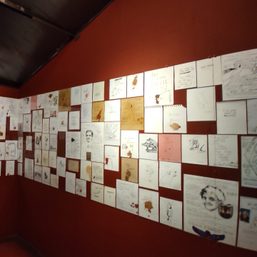
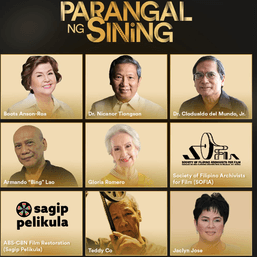
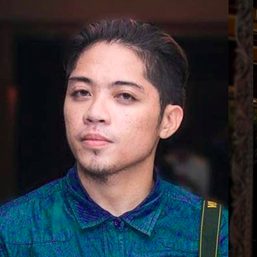
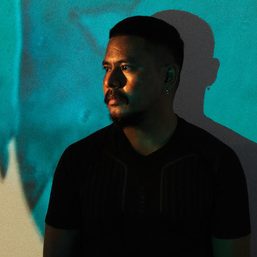
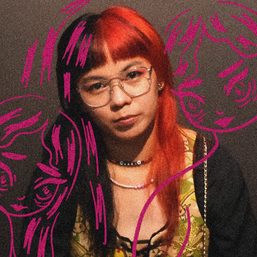
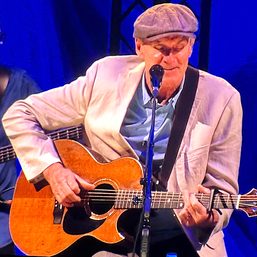
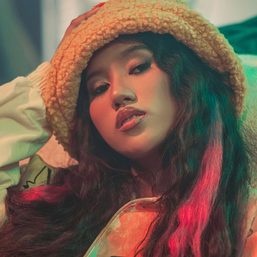
![[Uncle Bob] Crazy about vinyl? Here are some helpful tips](https://www.rappler.com/tachyon/2024/02/vinyl-3image7.jpeg?resize=257%2C257&crop_strategy=attention)

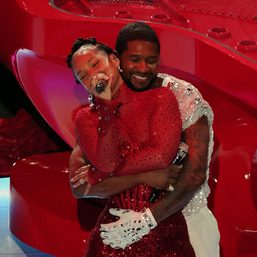
There are no comments yet. Add your comment to start the conversation.